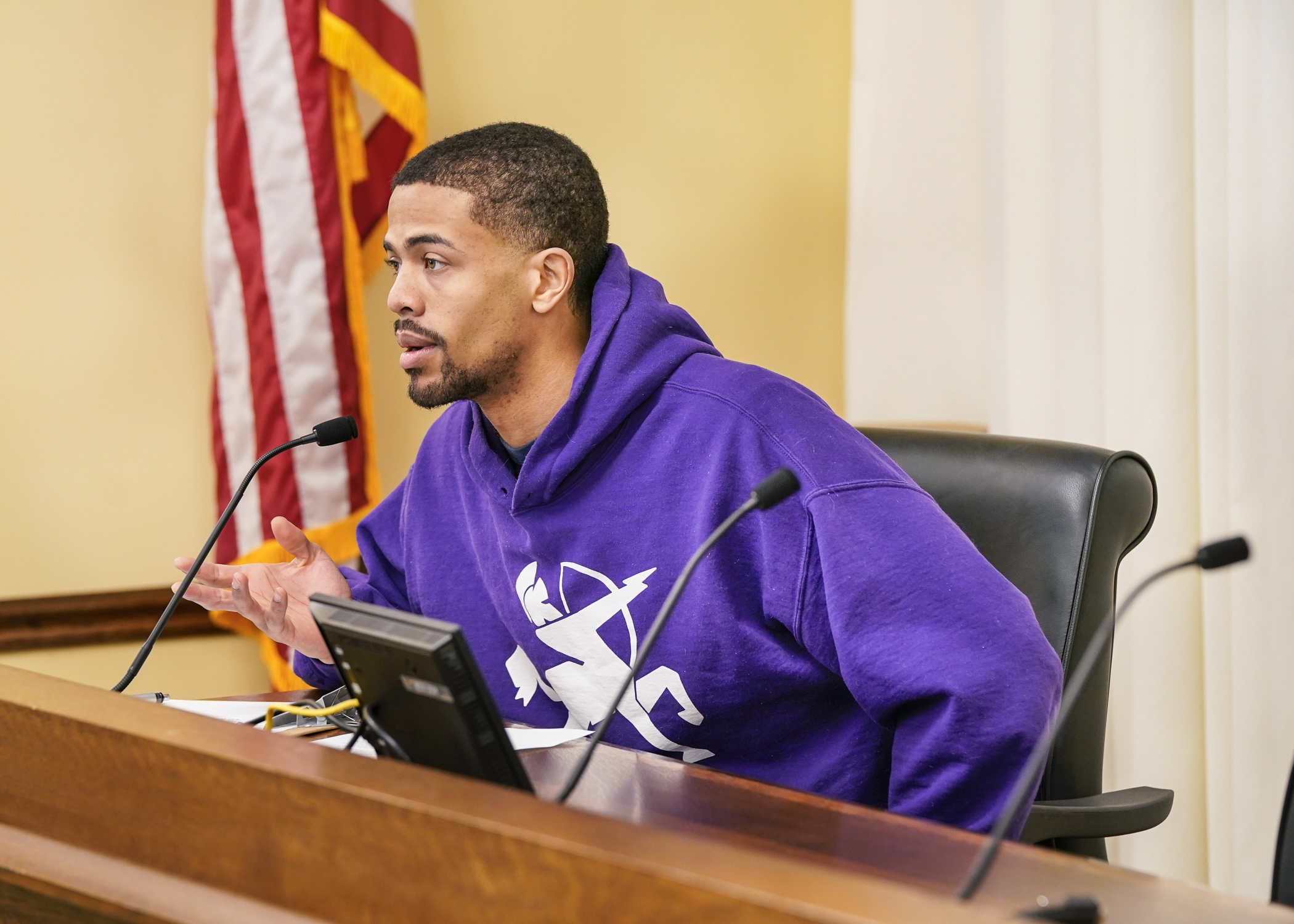Education committee hears funding pitch to kickstart novel schooling model
A full-service community school could be coming to a district near you.
The innovative educational model would receive a significant funding boost under HF21, a proposal laid over Tuesday by the House Education Finance Committee for possible omnibus bill inclusion.
“The model recognizes that student success requires that the needs of a student are met both within and out of the classroom,” said Rep. Samantha Vang (DFL-Brooklyn Center), the bill sponsor.
Vang noted that her hometown has pioneered the implementation of these schools in Minnesota and that the entire district now operates within the full-service community school framework. She would like to make state resources available to more districts looking to reap the benefits of this blueprint.
 Rashidah Fuller, full-service community school coordinator at Excell Academy for Higher Learning, testifies before the House Education Finance Committee Jan. 31 in support of HF21. (Photo by Catherine Davis)
Rashidah Fuller, full-service community school coordinator at Excell Academy for Higher Learning, testifies before the House Education Finance Committee Jan. 31 in support of HF21. (Photo by Catherine Davis)To that end, her bill would appropriate $90 million in fiscal year 2024 and $90 million in fiscal year 2025 for grants to fund full-service community schools at both existing and new sites across the state.
This would herald a dramatic expansion of such schools in Minnesota – only $6.5 million in grants have been allocated since the Legislature inaugurated this educational model eight years ago. In that time, 25 sites across the state have utilized the funding.
As laid out in a press release, “a full-service community school incorporates aspects of early childhood services and academic support and enrichment activities including an extended school calendar, career counseling and internship opportunities, parent involvement and leadership, mental and physical health support, community involvement, and service learning.”
In practice, this means a local middle school might house health care services on-site, run an extra shuttle in a rural area for students who miss their bus, or provide low-income students with free hygiene supplies like laundry detergent.
Proponents argue this allows a community to knock down barriers that stand in the way of effective learning for students while at school.
“The services we offer translate to improved student wellness and performance,” said Angel Smaller, a site coordinator with Brooklyn Center schools. He noted that truancy and suspension rates have gone down in the past year owing to these services.
No one testified in opposition to the proposal, but Rep. Ben Bakeberg (R-Jordan) raised one notable concern, asking if anything is currently stopping school districts from converting to the model.
According to Adosh Unni, the Department of Education’s director of government relations, the answer is no, but local districts have found implementation to be impracticable without dedicated funding from the state.
Related Articles
Search Session Daily
Advanced Search OptionsPriority Dailies
Speaker Emerita Melissa Hortman, husband killed in attack
By HPIS Staff House Speaker Emerita Melissa Hortman (DFL-Brooklyn Park) and her husband, Mark, were fatally shot in their home early Saturday morning.
Gov. Tim Walz announced the news dur...
House Speaker Emerita Melissa Hortman (DFL-Brooklyn Park) and her husband, Mark, were fatally shot in their home early Saturday morning.
Gov. Tim Walz announced the news dur...
Lawmakers deliver budget bills to governor's desk in one-day special session
By Mike Cook About that talk of needing all 21 hours left in a legislative day to complete a special session?
House members were more than up to the challenge Monday. Beginning at 10 a.m...
About that talk of needing all 21 hours left in a legislative day to complete a special session?
House members were more than up to the challenge Monday. Beginning at 10 a.m...